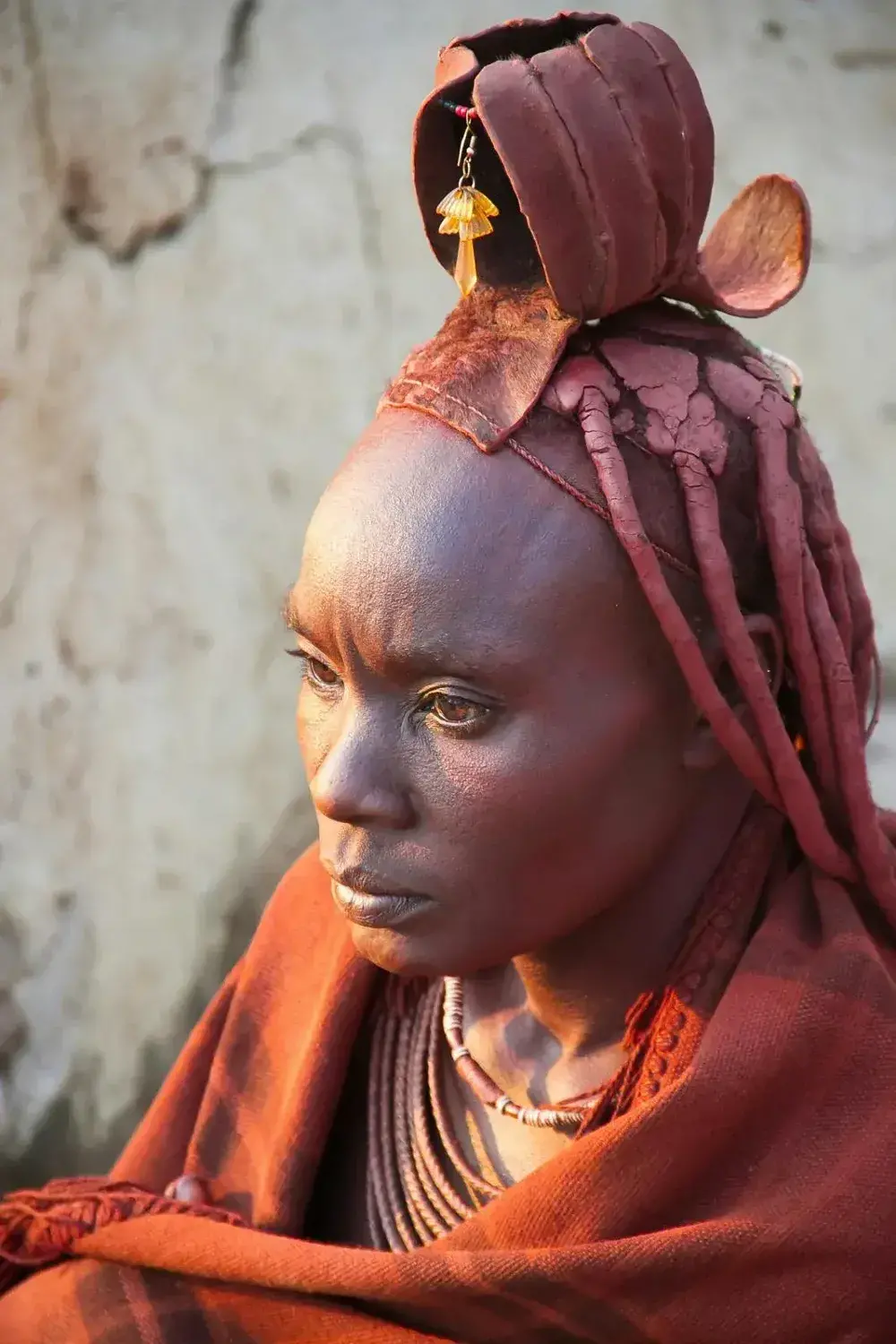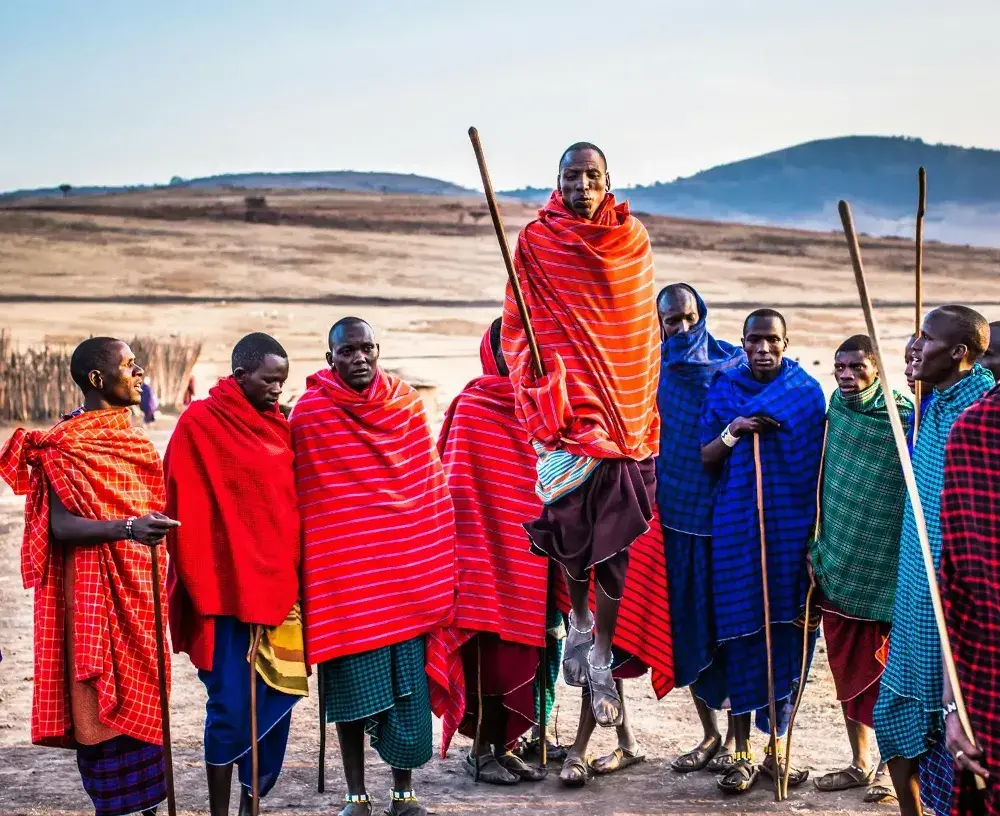Africa is the second largest continent in the world, rich in cultural diversity.
There are many African destinations with which Cooperating Volunteers collaborates, and that is why today, as a curiosity, we will tell you about some of the traditional festivals and events that reflect their historical heritage and customs.
These are the most popular festivals on the continent
FES MASK FESTIVAL (Morocco)
Also known as the International Festival of Cultures and Arts of Fez (FICAF), it is a celebration that takes place in the city of Fez, Morocco. This festival is a manifestation of the rich cultural and artistic heritage of the region and attracts artists and spectators from all over the world.
A wide variety of masks are exhibited, including both traditional Moroccan designs and contemporary creations by local and international artists, and various performances such as
traditional dances, theater, and music, where masks play a central role, are held. These shows not only represent Moroccan culture but also include influences and styles from other cultures.
During the festival, workshops are organized where attendees can learn about mask-making and the history behind them. There are also exhibitions showcasing the different techniques and materials used in mask creation.
A cultural bridge that promotes exchange and understanding between different cultures and traditions. Artists and visitors from various parts of the world participate in the event, enriching the atmosphere with a mix of styles and perspectives.
There are also mask parades through the streets of Fez, as well as conferences and debates on the cultural and artistic importance of masks.
A vibrant and significant event that celebrates the rich tradition of masks in Moroccan culture and offers a platform for artistic and cultural exchange. It is a unique opportunity to experience Morocco’s history and creativity while enjoying a festive atmosphere.

CAPE TOWN CARNIVAL (South Africa)
The carnival, also known as the Cape Town Carnival, is similar to the Rio de Janeiro Carnival.
A colorful and lively event known for its energy, creativity, and the cultural diversity of the region.
The main event is a dazzling parade that runs along the famous Green Point Fan Walk. The parade features elaborate floats, spectacular costumes, and the participation of numerous dance and music groups. Each year, a specific theme is chosen that inspires the costumes, floats, and performances. The themes often reflect aspects of South African culture, history, and relevant global issues.
It celebrates the cultural diversity of Cape Town, incorporating elements from the various ethnic communities and traditions that coexist in the city. This is reflected in the variety of musical styles, dances, and costumes present at the event. Therefore, the carnival’s preparation involves local communities, artists, designers, and volunteers, fostering a sense of community and collaboration. Workshops and community programs are held throughout the year to prepare for the event.
In addition to the parade, there are multiple stages and spaces where live music, dance, and theater performances are presented.
The city transforms into a great outdoor party with activities for all ages, food and drink stalls, and a festive atmosphere that attracts both locals and tourists.
LAKE TURKANA FESTIVAL (Kenya)
The Lake Turkana Festival is a cultural celebration that takes place in the Loiyangalani region, in northern Kenya, near Lake Turkana. This annual event, usually held in June, is organized to promote peace and unity among the diverse communities that inhabit this area.
It brings together more than a dozen local tribes, including the Samburu, Turkana, El Molo, Rendille, Dassanech, and Gabbra communities. These communities have a history of conflicts and tensions, and the festival seeks to foster peaceful coexistence and cooperation. The tribes showcase their unique customs, traditions, and ways of life. This includes traditional dances, music, clothing, and rituals that are an essential part of their cultural identities.
They are not only vibrant spectacles but also serve to preserve and share their cultural heritages. Traditional products such as jewelry, textiles, and utensils are also sold. In addition, typical dishes of the region can be tasted, offering visitors a unique culinary experience.
The festival includes competitions of traditional and modern sports, promoting a sense of camaraderie and friendly competition among the tribes.
Organizing an event of this magnitude in a remote region presents significant challenges in terms of infrastructure and security. However, coordinated efforts between the local government, non-governmental organizations, and the communities themselves have made the continuous celebration of the festival possible.

GEREWOL FESTIVAL (Niger)
The Gerewol Festival is an annual celebration of the Wodaabe community, a nomadic group belonging to the Fulani people, who inhabit the Sahel, mainly in Niger. This festival is known for its striking and colorful courtship ceremonies, where men elaborate their adornments and participate in beauty competitions to attract potential partners.
The festival is an occasion for young Wodaabe to seek partners. It is an opportunity to demonstrate beauty, talent, and endurance. Beyond courtship, the Gerewol is an affirmation of the Wodaabe cultural identity, a way to keep their traditions alive in a constantly changing world.
Men participate in a beauty competition called Yakee, where they adorn themselves with facial makeup, feathers, and ornate clothing.
The Guérewol courtship dance is a competition of endurance and skill. Men perform hypnotic dances to the sound of traditional songs that can last for hours and require great physical stamina. Grace and the ability to maintain rhythm and posture are essential. Women, acting as judges, select their favorites from among the dancers.
The festival also includes rituals that may include prayers, blessings, and acts of hospitality and community.
Some challenges are that the nomadic life of the Wodaabe is threatened by modernization, desertification, and climate change. These pressures make it increasingly difficult to maintain their traditions.
TIMKAT (Ethiopia)
Timkat is one of the most important religious festivities in Ethiopia, celebrating the Epiphany in the Ethiopian Orthodox Christian tradition. Timkat, which means “baptism” in Amharic, commemorates the baptism of Jesus in the Jordan River. The festivity takes place on January 19 (or January 20 in leap years) and lasts for three days, being a manifestation of religious, cultural, and community fervor.
It is an occasion to renew faith and remember the significance of baptism.
The rituals of Timkat symbolize the purification and spiritual rebirth of the faithful. The main activities are:
- Kidasie (Eve Liturgy)
The celebration begins on the eve of Timkat with a procession from the churches to a body of water (usually a river or specially prepared pool). Priests carry replicas of the Tabot, a representation of the Ark of the Covenant, covered and decorated. During the procession, the faithful sing and pray, accompanied by drums, sistrums, and chants.
- Night Ceremony (Ketera)
Upon arrival at the water site, night vigils are held with readings from the scriptures, chants, and prayers. The Tabot is kept in a ceremonial tent, where the faithful spend the night in vigil and prayer.
- Blessing of the Water
On the morning of Timkat, the water is blessed by the priests, symbolically recreating the baptism of Jesus. The water blessing ceremony is performed, where the blessed water is sprinkled over the congregation and some immerse themselves in the water as an act of spiritual renewal.
- Return Procession
After the water blessing, the Tabot is carried back to the church in a festive procession. The faithful, dressed in their best traditional clothing, accompany the procession with dances, songs, and celebrations.
Timkat is crucial for the preservation of Orthodox Christian traditions and faith in Ethiopia. It is therefore a deeply spiritual and cultural festivity that not only celebrates a significant religious event but also strengthens community bonds and preserves Ethiopian traditions.
These are just some of the most popular festivals and celebrations in some African countries.
We look forward to seeing you in a second part to learn about many more.




